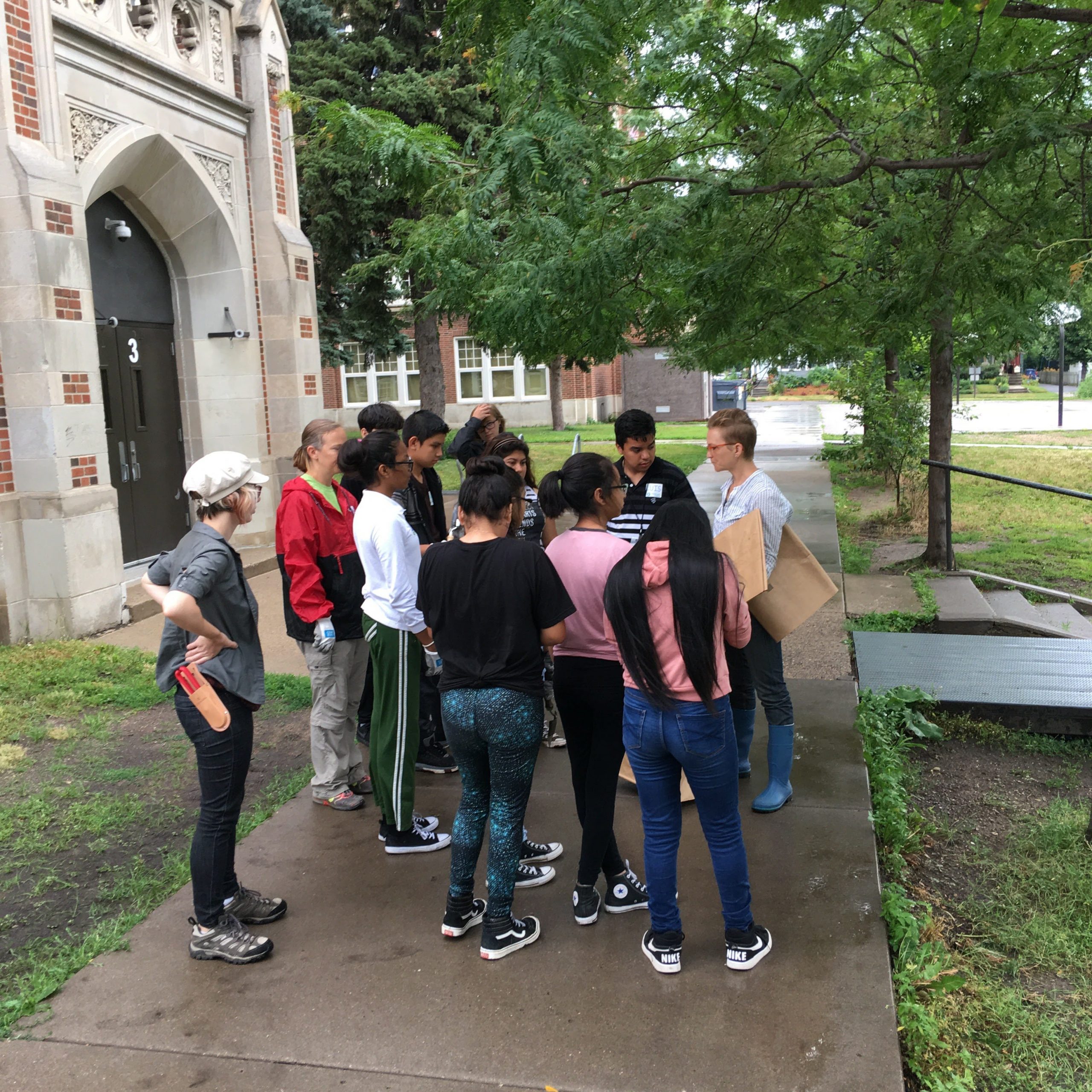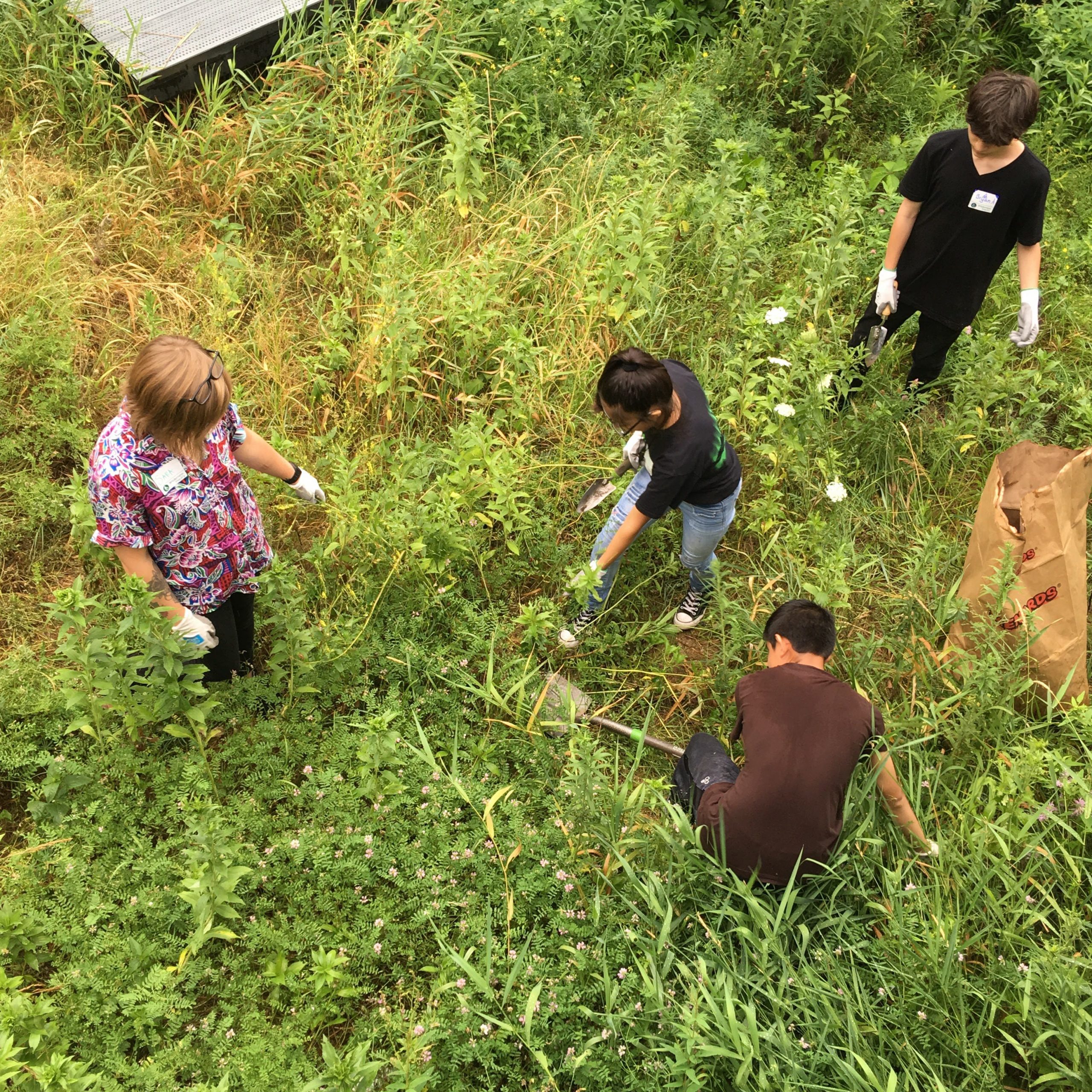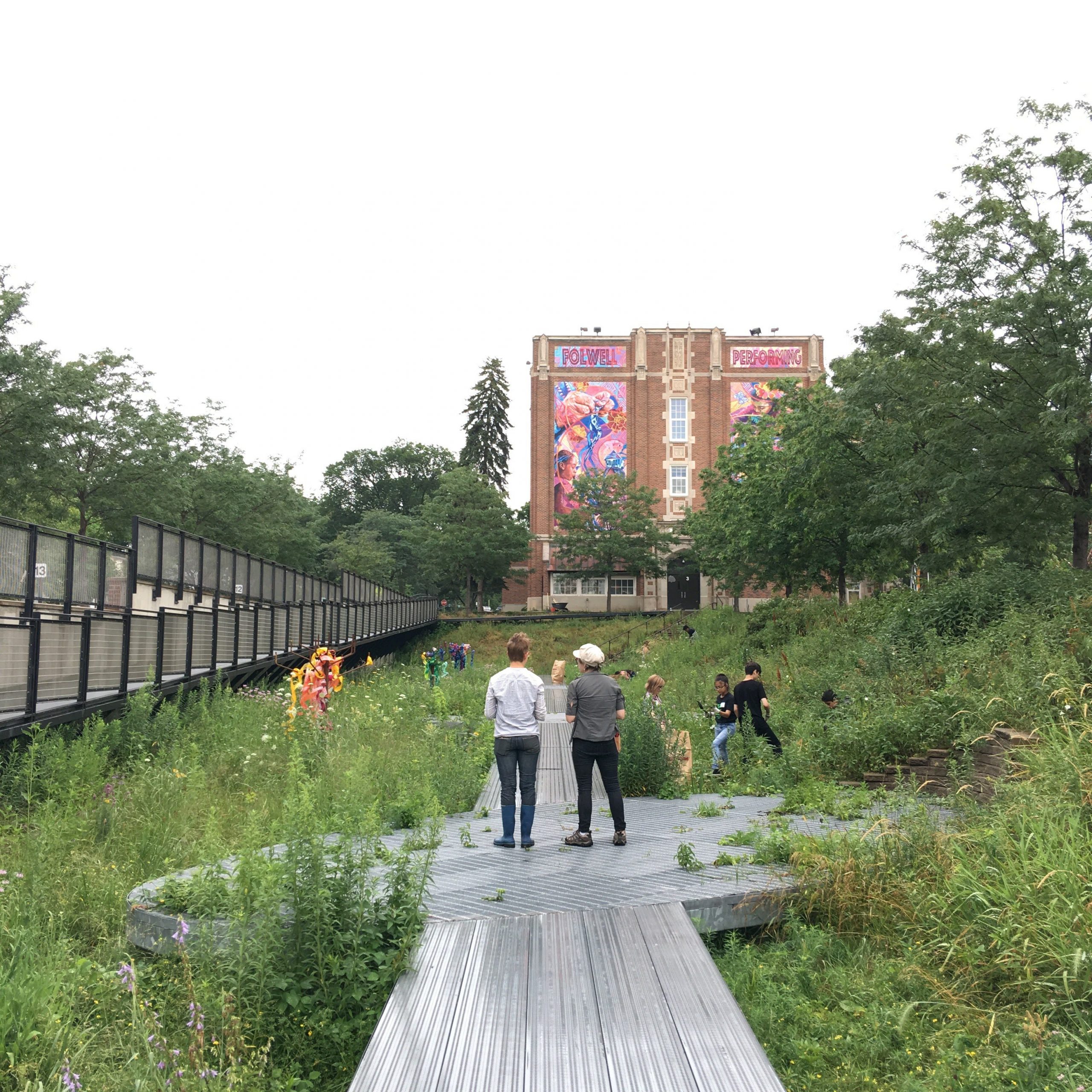
The Sustainable Need to Weed
“How many of you, if we go out to weed right now, would know what you’re doing?” Anna Bierbauer, our Metro Blooms landscape designer, asks. In a classroom at Folwell School this summer, two Wilderness Inquiry youth raise their hands.
Soon after a short lecture about two species of weeds, the crown vetch and spotted knapweed, as well as the correct way to pull and dispose of those weeds in order to not spread seeds, the group of ten heads outside to the school’s large raingarden.
They pull on some gardening gloves, breathe in the humid, rainy air, and begin working on one of the largest weeding and maintenance jobs Metro Blooms has seen for a raingarden in south Minneapolis.
For many property owners, this would probably be a familiar feeling. Most people maintain their own gardens in those rare occasions after work or on the weekend, grudgingly.
Anna talks more about the overall problem she’s seen out in the field. “In the last 10 years, the use of green infrastructure in stormwater management has increased greatly including small residential rain gardens designed by Metro Blooms,” she says. “But, the maintenance of said infrastructure has not increased at the same rate, largely because these rain gardens or swales or bioretention ponds require a certain set of skills, and there aren’t enough trained laborers.”
And the problem’s impact appears to be deeper. “In general, most people don’t realize the impact a lack of maintenance will have on functionality or will wait until the garden looks bad to address maintenance. If an inlet is clogged, short-rooted weeds have overrun the garden, or the outlet is plugged, the garden won’t work as intended. The main issue for raingardens or vegetated BMPs is that if the plants aren’t healthy, the BMP isn’t functioning or doing its best at filtering or infiltrating stormwater,” Anna says.

After hours in the raingarden, Wilderness Inquiry youth pulled enough crown vetch and spotted knapweed to fill more than five waist-high brown bags, and we have to keep in mind that only two weed species out of many were pulled from the area.
To address the issue of maintenance, Metro Blooms put together a maintenance training pilot program, empowering youth in Minneapolis with skills and in-depth knowledge about the sustainable landcare field in a practical, hands-on way. The pilot program was funded by Hennepin County Green Partners program and the Minnehaha Creek Watershed District and teaches skills that many raingarden owners, caretakers, and businesses need.
“After discussing the curriculum with several professionals, we decided to focus on maintaining vegetation, identifying weeds and desirables, removing weeds, and inspecting sites. Over the course of the summer, we added in smaller structural pieces such as permeable pavers, trench drains, and catch basins to broaden the experience,” Anna says.
Metro Blooms completed similar work with Mississippi River Green Team, featured on Kare 11. Each student, each person, walked away from the program with knowledge and an education in a rising, necessary need: maintenance for green infrastructure in stormwater management.

Although these students and youth may move toward other pursuits than sustainable landcare, the maintenance pilot program has revealed an opportunity in the field at large: providing maintenance services and education for property owners with raingardens and BMPs.
…..
 Selina Scheumann holds an MFA in creative writing and was the Communications Intern at Metro Blooms.
Selina Scheumann holds an MFA in creative writing and was the Communications Intern at Metro Blooms.
